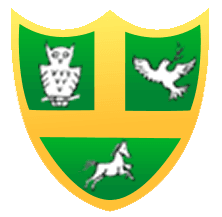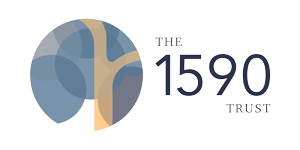History
Article 28: Every child has the right to an education
Intent: What we are trying to achieve in our curriculum?
Our curriculum is designed to meet and address the needs of the children who attend our school. It is ambitious, inclusive, broad and balanced. It is designed to provide a progression of knowledge, skills and vocabulary with clear end points, at the end of key phases in school. The threads ‘Be Ready, Be Respectful and Be Safe’ provide the intent of our curriculum design and are implemented throughout History lessons.
Characteristic |
What do we want to develop in our children at Kirklevington? |
What does this look like in our School? |
Be Ready |
Be Ambitious – aim high, exposure to experts and role models, challenge provided in teaching knowledge, skills and vocabulary |
|
|
Be Independent – Prepared for now, the next steps and for life |
|
|
Be Resilient – confident, develop self-regulation, well-being strategies and be problem solvers |
|
|
||
Be Respectful |
Respectful behaviours – towards ourselves, our peers and others |
|
|
Respect rights -RRSA – Understand our rights, how they affect our lives and rights of children globally, celebrating differences |
|
|
Respect the environment – our school, the community and the wider world |
|
|
||
Be Safe |
Keep ourselves safe – know how to report concerns and worries, including with friendships |
|
|
Being safe in the school and community – Knowledge about, our families, the school, the local context and wider world |
|
|
Being safe online –Using technology for the right reasons and knowing its limitations |
|
Implementation
Within school, History is taught with the half term topic in mind. As a result of this, teachers provide students with a cross curricular education where possible, to ensure a broad and balanced curriculum. Planning is informed and aligned with the national curriculum. Staff identify the key knowledge and skills of each topic, which consequently allows for progression throughout each year group. Strong links between History and English are planned for, allowing in depth, contextual learning.
Across key stages, a range of teaching and learning styles are used to develop children’s knowledge, skills and understanding of history to enable children to think as historians. A vital part of this is enabling students to compare different periods of time with their own lives, therefore the children are taught about the history of their local area where possible. Teachers ensure to plan visits of educational sites to enhance learning experiences, ensuring learning is relevant, stimulating and real. History lessons are planned to allow not only for children to learn from the teacher, but also to discover their love of the subject themselves, through questioning and research.
The children’s work is regularly monitored to clarify that their understanding of the content taught is in line with the key knowledge needed. The way in which greater depth is being taught, learnt and demonstrated is reflected on, to ensure that each child is being taught inclusively with a rich, engaging curriculum.
Within the Early Years Foundation Stage (EYFS) staff follow ‘Development Matters in the EYFS’ guidance. This outlines the importance of all children in reception to have an ‘Understanding of the World; people and communities, the world and technology’ by the end of the academic year.
Impact
The children’s work and understanding, reveal evidence of a broad and balanced curriculum. Formative teacher assessment of the Key Assessment Criteria sets out steps so that pupils reach or exceed the end of year group expectations. This enables teachers to gauge whether pupils are on track to meet their end of key stage expectations, and it pinpoints aspects of the curriculum where pupils are falling behind as well as recognising exceptional performance. Annual reports to parents outline each child’s achievement in history and provides details about pupils’ strengths and weaknesses, as well as the progress they have made.

